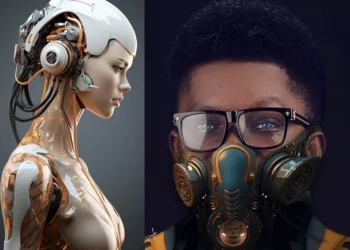How did you get into the furniture industry?
I remember when I came back to Nigeria from the UK in 2015/ 2016 for my internship, I realised that internship in Nigeria is different from the UK. In the UK, most at times you have a set of deliverables you are supposed to meet, you have scope, so automatically, you are staffed for the duration of the internship. If you are not told, you will not be able to differentiate an intern from a staff because you have a supervisor, you have a set of deliverables and all that. You are expected to write reports at end of the internship, you are expected to write a summary, present all that you have learnt during the course of the internship.
But in Nigeria, in most cases the first day of your internship, you are asked to run errands and other unrelated office work, so it was weird to me, so I could not comprehend it, I mean just Imagine going to work where there is no deliverables, no scope etc. You wake up early in the morning, prepare and go to work and you get there, and you have nothing to do. At the end of the day, you can’t look back and say this is what you have achieved for the day. I had to stop the internship. When I did, I now asked myself what can I do to add value to myself and to my community? Because time is money, time is the essence of everything. So, am like, I want to start doing Bamboo furniture. I didn’t want to do the normal conventional stuff like tailoring, hair dressing and don’t get me wrong these are amazing lucrative jobs too. I just wanted something different.
I realised as at that time, one man was into Bamboo. He sells the bamboo for scaffolding and decking to real estate developers. So, I started researching, I found out that I can do a lot with Bamboo. Bamboo is one of the major raw materials that can be used to solve the problem of global warming and deforestation. And you may want to ask why? bamboo releases about 35 per cent oxygen when you plant it and then when you use any of the eco-friendly products made out of Bamboo, cane, raffia it traps about 30 per cent carbon dioxide. And you know that its carbon dioxide that causes global warming because it destroys the ozone layer and we humans feel it here on the planet.
And you could see it, when we were growing up, it rains all through the month of August, but for last few years, August rainfall is not as before back then. And in countries where there is snow, snow seasons fluctuate in most cases this days. These are some of the major problems we are facing today as a result of global warming. United Nations is seriously taking action on it and we are working in line with that to solve the problem. So, this is how I found myself in the business.
You came to Abuja to train youths on how to make products with bamboo, what impacts do you think this training has had on them?
The last three days have been very impactful. If you were here on the first day, the focus was more of a mind shift, because who you are today is a function of your mindset, your exposure, your upbringing, your experiences. I am very glad that we were able to do this in partnership with Dominion City Church, Lokogoma District Parish. The church has a full time Business School.
So, at the programme, we empowered the youths, we encouraged them to have a mental shift. We told them that they can do all things because God has given them all that they needed to be great. When we did that, we now moved to teaching them some skills because most of them didn’t know that Bamboo is the new gold actually. And now, we are trying to create awareness. There is a saying that a journey of a thousand miles, begins with a step. So this is us starting something here in Abuja, telling them that they can make it as entrepreneurs in the area of Bamboo, though it’s not everybody that will buy into the idea, but the bottom line is that you can do it, have a win-win mindset. And as long as you start something, nature has a way of making things align in the right place(s) and before you know it, things will begin to fall in place. Not that there won’t be any challenge, life is full of challenges but the bottom line is learn from it and move forward.
What are the challenges that you have encountered so far in your entrepreneurial journey?
One of the challenges is sourcing for the bamboo itself. To get it and to transport it. I get it mostly from the riverine areas, like in Auchi, Edo State. Imagine if I’m transporting a trailer load to Lagos or to Abuja. That’s hundreds of thousands of Naira. So, I’m saying that logistics is one of the major problems. Also, getting people to know the importance of Bamboo, and that’s why we have this program to create awareness.
In 2021, I travelled to Kenya to represent Nigeria at the International Bamboo Study Tour which was organised by INBAR (International Body for Bamboo and Rattan Organization). They partnered with United Nations to bring this to life. People from different countries came and I was there representing Nigeria. I realised that Nigeria is far behind in the use of Bamboo. But we are getting better now by creating awareness about what we can achieve with bamboo and how the bamboo economic market can add to our economic growth as a nation since we already have the natural existing bamboo.
People who came from other countries, their government were aware of it, they sponsored them in executing bamboo related projects. For us in Nigeria, the government knows little or nothing about it. When we came back, myself and other of my colleagues, we met and decided to take on the challenge. Very soon, as a result of our collective efforts, we will inaugurate the Bamboo Stakeholders Association of Nigeria. We are working hand in hand with other ministries, like ministry of environment, ministry of trade and investment, so to ensure that we legalise the use of bamboo as a means of trade in Nigeria.
What are the things we can get from bamboo?
I will start by stating them industry by industry; you can use bamboo in the food industry, in the medical industry. But before then, you need to understand that bamboo has more than 1500 species and it does well depending on the region where it is being planted. In Nigeria, we are still experimenting to see which one would do well in the Nigerian soil. Bamboo, is our sole raw material, so we have to start thinking ahead.
This means that we have to start thinking about where we want to plant the bamboo. Although classified 2 SPP said that Nigeria has well over 1.7m hectares of natural existing bamboo. I know that as time goes on, we will exhaust those bamboos, we are already thinking of how to plant more bamboos for our use. Coming back to the uses of bamboo, some people in Asia use it as food depending on the specie.
What are the plans for expansion?
Yes, like this type of training we have just had, I told you that this involves a lot of mindset change and all other positive attributes. Even though we thought them business, what they can do with their hands, with their brain, etc., we are looking at partnering with some of the participants who will be willing to work with us. We have some who are going to be our ambassadors and partners. This is surely an avenue for expansion.
Where do you hope to be in the next 5 years?
We have some very ambitious plans that we have drawn up for growth. In the next five years, we want to be known globally by the grace of GOD, churning out a wide range of products from bamboo.





